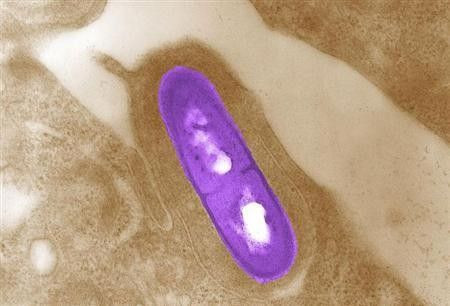Another Company Recalls Butternut Squash Products Because Of Possible Listeria Contamination
KEY POINTS
- Pero Family Farms and Publix had also recalled some butternut squash products recently
- Listeria infections can be very serious, and even fatal, in young children and the elderly
- It can lead to stillbirths, miscarriages and premature delivery in pregnant women
Lancaster Foods has recalled some of its butternut squash products as they may be contaminated with Listeria bacteria. This comes on the heels of butternut squash recalls by Pero Family Farms and Publix.
Lancaster Foods on Tuesday announced that it is recalling Autumn Medley, Butternut Squash Noodles, Butternut Squash Planks, Squash Noodle Medley, Butternut Squash Chunks and Veggie Rice Blends products.
It shared the UPC code and use-by dates of the recalled products on the U.S. Food and Drug Administration's (FDA) website. They were distributed to retail stores in North Carolina, Virginia, Maryland, Washington D.C. and New Jersey.
Though there have been no reports of illnesses related to the products, the company says it is issuing the recalls "out of an abundance of caution." It has also temporarily stopped their production as the company and FDA investigate the source of the possible Listeria Monocytogenes contamination.
Those who have purchased the affected products can return the items to get a full refund.
Lancaster Foods Recalls All Conventional Butternut Squash Items That Were Processed between the Dates of 12/22/20 and 01/08/21 Due to Possible Health Risk https://t.co/rpauVf9zHC pic.twitter.com/4tUbOhOe3U
— U.S. FDA Recalls (@FDArecalls) January 20, 2021
Butternut squash-related recalls
Recently, Pero Family Farms recalled its butternut squash products after its supplier notified them of possible Listeria contamination.
Publix followed suit. The grocery chain pulled Pero Family Farms products from its shelves. It also recalled its own products that were produced using Pero Family Farms' butternut squash.
It's unclear how Lancaster Foods learned about the potential contamination or whether it is connected to the previous recalls.
Listeria infection
Listeria infections can be very serious, and even fatal, in young children, the elderly and those with weakened immune systems. It can lead to stillbirths, miscarriages and premature delivery in pregnant women and can cause a life-threatening infection in the newborn.
According to the Centers for Disease Control and Prevention (CDC), healthy people "rarely" get sick with a Listeria infection. But healthy individuals infected with Listeriosis sometimes experience short-term symptoms like headache, nausea, abdominal pain, diarrhea and fever.
In the 1990s, Listeria outbreaks were often linked to deli meats and hotdogs, the CDC said. They are now more often associated with dairy products. Recent Listeria outbreaks, for instance, have been linked to items such as celery, cantaloupes, soft cheeses and even ice creams.
Other foods that are "more likely" to contain the bacteria include raw sprouts, melons, cold cuts, smoked fish and raw or unpasteurized milk.

© Copyright IBTimes 2025. All rights reserved.






















